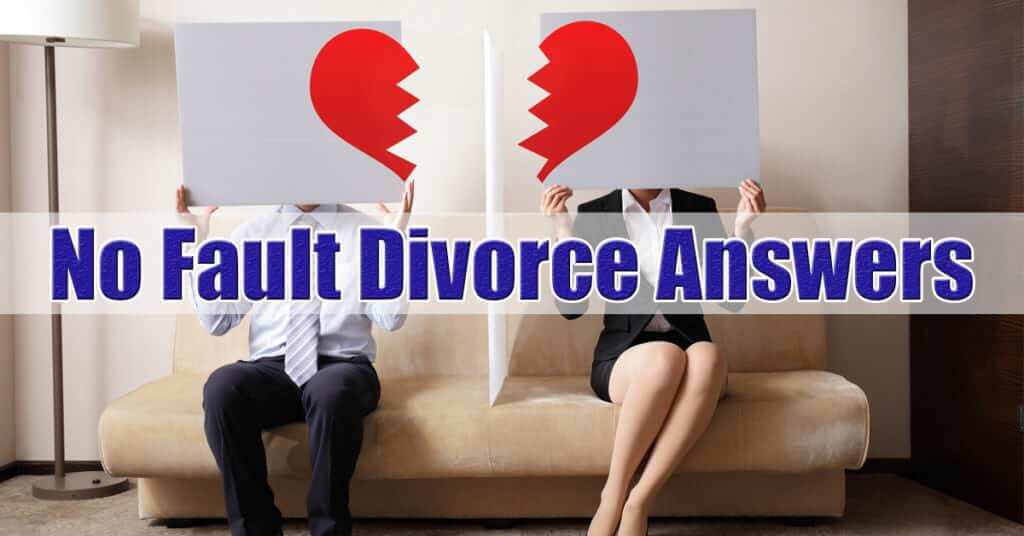What is No-Fault Divorce on Long Island?
No-Fault divorce on Long Island is a way to get a divorce without assigning blame to one spouse or the other. While a “Fault” divorce requires that one spouse show the other spouse committed an act such as cruelty, adultery or abandonment, no-fault divorce instead asks a spouse to simply show that the marriage has “broken down irretrievably” for at least six months. The couple need not live in separate residences for six months, but must allege that the marriage has been “broken down” for at least that period of time. A judgment of divorce will not be granted on the grounds of “irretrievable breakdown” until marital property distribution, custody and visitation, and spousal and child support have all been decided.
Why is No-Fault Divorce Better than “Fault” Divorce on Long Island?
Since No-Fault divorce removes the need to prove someone is at fault in order for divorce to granted on Long Island, divorcing couples and courts in Nassau County and Suffolk County are spared the time-consuming and costly litigation over whether a divorce should be granted and why. Previously, divorce litigation involved months, if not years, of airing the family’s “dirty laundry” in a courtroom, which often led to increased hostility and even emotional devastation. Instead, in no-fault divorce, the focus is shifted to an outcome that is in the best interests of the children and family, and an equitable division of marital assets.
What Happens If My Spouse Does Not Agree to a No-Fault Divorce?
In the past, if your spouse refused to sign divorce papers on Long Island, he or she could have complicated the situation considerably, resulting in a drawn out and frustrating divorce process. New York’s adoption of the no-fault divorce law has solved this problem, as courts can grant a divorce based upon “irreconcilable differences” in the marriage, rather than requiring that fault be placed on one spouse or the other.
Furthermore, a common reason that one spouse refused to sign the papers was because the papers placed the blame on him or her. No-fault divorce has essentially removed this reason to resist signing. Under no-fault divorce, the court takes note that, when one spouse wants a divorce and the other does not, this is evidence of a breakdown of the marriage on the most fundamental level and is a valid basis for divorce. In fact, all the court needs is for one spouse to swear to irretrievable breakdown under oath. The no-fault law removes this hurdle, but does not by any means resolve all of the issues that must be addressed in divorce.
How Do I Get a No-Fault Divorce on Long Island?
To commence the divorce proceeding on Long Island, your spouse must be served with a Summons and Complaint. These documents notify him or her of the proceeding and provide an opportunity to appear. If your spouse does not appear or reply, you may be able to move forward with the divorce without his or her consent. You must prove that your spouse was served with the Summons and Complaint, which can be shown by a signed affidavit of service of a process server. The court will likely grant a default judgment against the non-responding spouse, and you’ll likely receive what you have asked for in the complaint.
However, if your spouse does appear and contest the divorce, this complicates matters. While he or she cannot stop the proceeding, and cannot contest the no-fault grounds for the divorce, they can certainly prolong or complicate matters by contesting other issues, like distribution of property or child custody and visitation. The judge will hear the evidence and testimony on all issues that are in dispute. This process will cost you both time and money, but once a judge decides these issues, the divorce will be granted.
If you used any of New York’s fault grounds as the basis for your divorce, such as adultery or cruel treatment, you will be asked to prove that this type of marital misconduct occurred, and this will be an additional area that will have to be litigated. If there are any issues that you can settle with your spouse outside of court, this will save you both time, money, and stress.
How Long Will My No Fault Divorce Take on Long Island?
The answer will depend on the circumstances of your case, but a consultation with an experienced Long Island Divorce Lawyer can inform you of general time frames and timelines for your divorce once he or she has the facts about your case. If you have questions about your divorce, or any issues that you and your spouse cannot seem to agree upon, it is important that you reach out to an experienced Long Island divorce attorney for advice.
Need Help With Your No-Fault Divorce on Long Island? Call 631-923-1910 for a Free Consultation
The experienced and compassionate divorce lawyers at the Law Office of Hornberger Verbitsky, P.C. can assist you with all of your divorce and family law needs on Long Island, serving Suffolk County, Nassau County, and New York City. Call our office today at 631-923-1910 for a free consultation.
SCHEDULE YOUR FREE CONSULTATION TODAY
Call 631-923-1910 or fill in the form below

Schedule your complimentary consultation and case evaluation with our experienced attorneys today. When you call, you’ll speak to our friendly Client Services Director, who will be able to answer your general questions and set up your appointment with an attorney who specializes in your unique case.
At your meeting, your attorney will describe the many options available and determine together which is the right solution for you. By the end of this meeting we’ll all understand how we can best help you to move forward.
No Cost or Obligation
There is no cost or obligation for this initial consultation. It is simply an opportunity for us to get to know each other, answer your questions and learn if Hornberger Verbitsky, P.C. is right the right law firm for you. Give us a call at 631-923-1910 or fill in the short form below to schedule your free consultation and case evaluation.
All Fields Are Required
